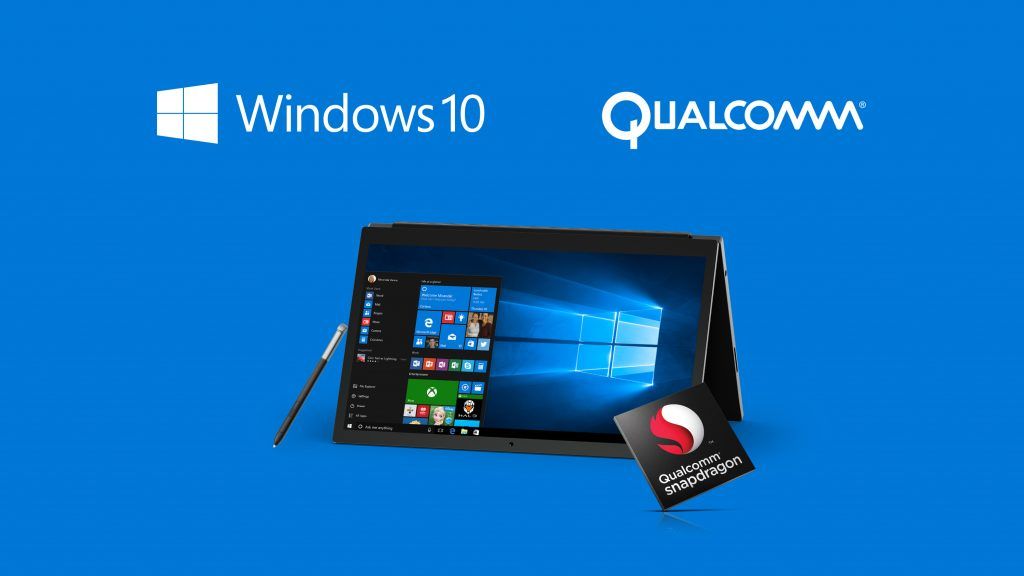If you've been following along for the past decade or so, then you know that the story between Microsoft and Google is the same. Whether it's Windows RT, Windows Phone, or Windows 11 on Arm, we never see native Google apps. Of course, the former two of those three platforms are long dead, but Windows on Arm is alive and well, and there's no native Arm64 Google Chrome browser for it.
I had heard back in early 2019 that Google had an Arm64 version of Chrome ready to go, and one of my sources had compared it to Prime Video support for Chromecast. In other words, these two companies have to come to a deal first. It shouldn't come as a surprise though, as there are plenty of Arm-powered Chromebooks. Google is no stranger to having its browser run on Qualcomm's processors.
But still, the only browsers that run natively on Arm64 Windows PCs are Microsoft Edge and Mozilla Firefox. So while it's not much of a mystery why Google's not bringing its own apps to Windows on Arm, the question is, what about browsers like Vivaldi, Brave, and Opera? As it turns out, that's Google's fault too.
It all comes down to Widevine
Microsoft rebuilt its Edge browser from Chromium a while back, and it stripped out most of the Google parts; however, most browser makers don't have the resources that Microsoft has. Vivaldi, Brave, and pretty much every other Chromium browser, except for Edge, uses Widevine, Google's DRM solution that's needed to run web apps like Netflix and other streaming services. Google isn't offering Widevine for Windows on Arm, so that's the roadblock. The browser would work, but those services wouldn't.
When I asked Vivaldi about a native Arm64 version of its browser, the answer was a straight no.
"The biggest problem would be that it would not work with any of the big media platforms like Netflix, Prime, Disney+, etc.," a Vivaldi spokesperson said in a statement to XDA. "And that is entirely and completely out of our hands because Google does not produce Widevine for Windows ARM and without that we can not decrypt the DRM used on these platforms. So we could make a browser but you couldn't use it for any of these services. If and when Google starts offering Widevine for Arm on Windows, then we could and perhaps should do it."
The firm did acknowledge that it theoretically could be possible to abandon Widevine in favor of Microsoft's PlayReady, which is why Edge can run natively on Arm, but of course, "that would take some work". It's worth noting that even though Windows on Arm devices have been on the market for over five years, it's really still not a mature platform. The volume of devices in use probably doesn't justify that kind of effort from a smaller company like Vivaldi Technologies.
I spoke to Brave when I started researching this story as well. The company didn't offer the same hard no that Vivaldi did. It did acknowledge the Widevine issue though. VP of Engineering Brian Clifton was pretty straightforward about the fact that there really are no roadblocks to actually building the browser. He also suggested that in lieu of a native Widevine build, Brave may be able to find a "clever workaround". In fact, it seems like the firm is already working on it.
I reached out to Opera as well, but the company declined to comment.
Again, the issue here isn't about whether the browser will work or not. It's that without Widevine working, the browser wouldn't be fully functional with services like Netflix not working.
Native browsers are really important
Windows on Arm PCs can emulate any app that's made for an Intel processor. There's nothing stopping you from running Google Chrome, Vivaldi, Brave, Opera, or whatever other browser you can get your hands on. It's just not very good.
This has been a problem since the early days of Windows on Arm. Web browsers generate code on the fly, which is harder to cache and emulate. When you start to see the drastic difference in performance between the browser you want to use and Microsoft Edge, you'll probably go and use Edge, or just buy an Intel PC.
The official Qualcomm statement that we got is, "The Windows on Snapdragon App Ecosystem momentum continues to accelerate as more market leaders invest in delivering native ARM solutions. We look forward to sharing new releases as they become publicly announced by our ISV partners." Google hasn't responded to our requests for comment.
The goal that I've heard from many people inside of Qualcomm is that eventually, performance will get good enough that you won't even notice that an app is being emulated anymore. Indeed, that's a possibility, but given that it's now been over five years, it's getting harder and harder to remain hopeful about this stuff getting fixed.
Of course, Qualcomm is working on custom processors that will compete with Apple Silicon, and will ship next year. Hopefully that will be the break that the platform needs, because the current Qualcomm Snapdragon chips that are based on Arm reference designs don't seem to be cutting it.
Until then, the Windows on Arm fate seems to, once again, be in Google's hands. As long as it can keep native browsers from being compiled for Arm64, especially when one of those is Google Chrome, Microsoft's fate is still tied to Intel.



